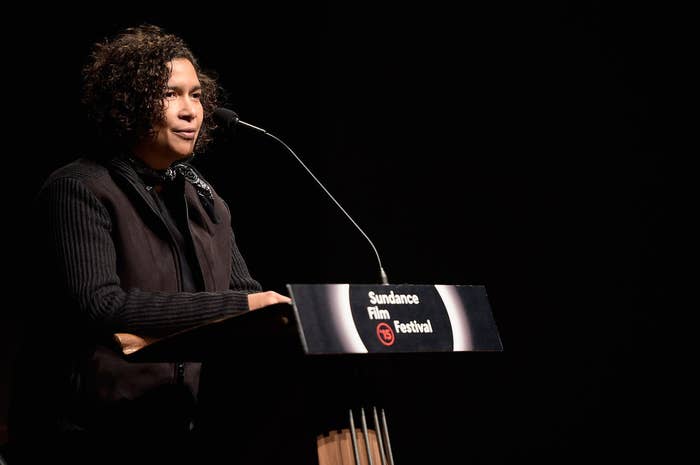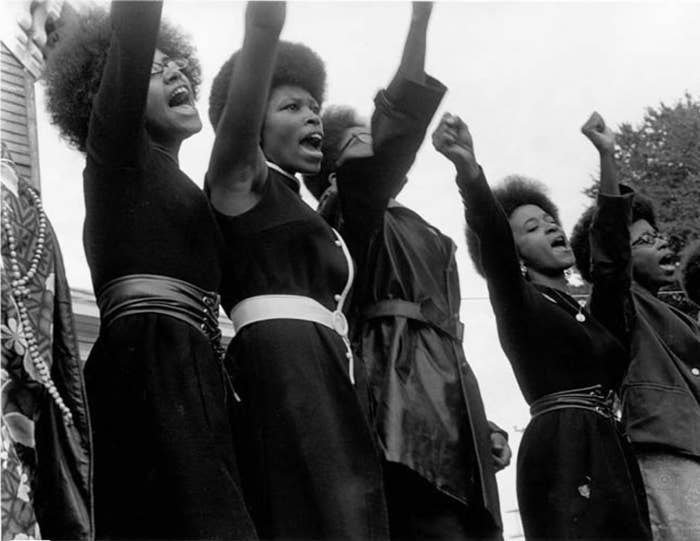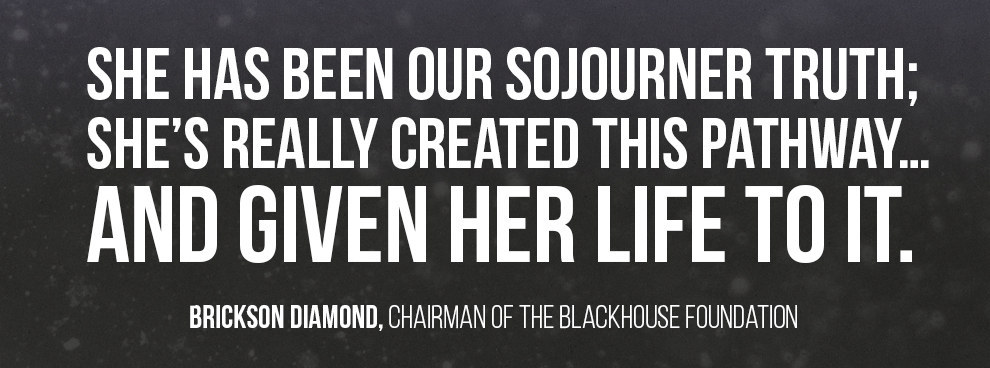
PARK CITY, Utah — The story of the killing of a rising young black leader in 1969 hit the Sundance audience hard. As the details of Fred Hampton's death rolled out — the Chicagoan was fatally shot by police in his apartment, a killing that felt like an assassination — it was evident that viewers were having an emotional reaction to The Black Panthers: Vanguard of the Revolution. It was one of several visceral moments in Stanley Nelson Jr.'s documentary, and even though it was first viewed by a largely nonblack audience, those who witnessed the film at the 2015 Sundance Film Festival gasped when they saw images of the 21-year-old's bloody, bullet-ridden body hanging halfway off his bed.
That same emotional connection would play out at other black films that screened at the festival. This year's group of films ranged in terms of setting and era; some reached back to explore the Black Panthers party or Nina Simone, and others took on contemporary issues like racial profiling and subsequent unjust murders. The common link between them was that they all were striking cinematic experiences, gut-punching viewers with a dose of historical reality from which it was difficult to quickly recover.
Shari Frilot is the reason why these types of stories are even being presented at Sundance, particularly to an audience that tends to be largely white. Frilot has been with the Sundance Institute since 1998 (her first Sundance Film Festival was in 1999), and she's the festival's only black programmer. She's also the curator of Sundance's New Frontier, an interactive art exhibit that presents storytelling in innovative and groundbreaking ways — to her, story is a way that we connect with our shared experiences.
"Culture is a way for us to see ourselves and to understand our humanity, to define ourselves to ourselves, and in the society that we live in," Frilot said in an interview with BuzzFeed News. "It really kind of sets the tone for our lives; not just film, but the stories. Film plays an important role in communicating story, and getting the story out there because of how immersive it is, and how engaging it is, how seductive film is, and how accessible it is."

It's not that the films felt heavy-handed or that they were lecturing to the audience. But there was a sense that many of the films shown this year had meaning and power. This hasn't been a banner year as far as quantity of black films or films made by black directors at the film festival, but the collective subject matter has been exceptionally gripping.
There was the highly emotional documentary 3 1/2 Minutes, which recounts the story of 17-year-old Jordan Davis, who was killed in 2012 at a Florida gas station for not turning his music down. The Spike Lee-produced Cronies echoed what we saw play out in Ferguson, Missouri. "This is why black boys are having a hard time living in the society," said Frilot, "because we're telling ourselves the wrong story, and we're doing the wrong thing because of it — it's important to have films that are diverse."
This mirroring of societal struggles old and new playing out on Sundance screens was not intentional, Frilot said. Even some of the filmmakers who had films in the festival this year — like Nelson, who directed The Black Panthers: Vanguard of the Revolution — said they were pleasantly surprised when Frilot reached out to them to ask them to submit their films for consideration. ("Really? For Sundance?!" he joked in front of an audience, adding that he was incredulous when Frilot first approached him about screening his 2010 documentary Freedom Riders.) But being wholly inclusive is important, Frilot said.
"Black stories are human stories, and black stories belong to everyone because black people are part of society," Frilot said. "Whether you're a black audience, a white audience, everybody's going to benefit from understanding and being empathetic about black lives, black stories, black experiences. It creates a world that is livable. There are a lot of levels of engagement, and interest that I have in film … it's all rooted in creating a more capacious society."

Frilot isn't alone in her quest to diversify Sundance. Brickson Diamond is the chair of the Blackhouse Foundation, which supports black filmmakers by spotlighting their work at prominent film festivals. His organization was born out of Sundance nearly 10 years ago, and came from recognizing the need for this very specific community of filmmakers. They support black directors, writers, and actors — regardless of whether the work in its entirety focuses solely on telling a story that's distinctly black. His group creates additional programming at film festivals for filmmakers, including panels on buying and selling films and the power of representation, and multicultural receptions. Frilot, he said, has been instrumental in securing films and giving them a stage to speak from that is as prominent as Sundance.
"You cannot overstate Shari's role in creating this platform for black filmmakers," Diamond told BuzzFeed News. "She has been our Sojourner Truth; she's really created this pathway and championed the films and given her life to it."
There still is much work to do, said Diamond. "I'm not going to indict them," he said of Sundance officials. "Though there are fewer films here, they have been so much more potent than I can ever remember them being as a collection of films."
The progress that these films represent, however, is significant. In 2011, the festival aired 31 films that were either written or directed by black directors or had a black actor in a principal role. This year there were only about 16.
Despite the drop in the number of black films, the success of this year's crop has been incredible. Dope, a feature that explores a black teen coming of age in the inner city, was one of the highest selling films this year, going for $7 million to Open Road/Sony with a guarantee to spend an additional $15 million to market the film; the Jordan Davis documentary was acquired by HBO; the Nina Simone film will air later this year on Netflix; and the Black Panthers documentary will have a limited theatrical release this fall before airing on PBS next February.
"As these films that I fight for … come on and become successful, my voice gains a certain credibility," Frilot said. "When these films go on to find success, it just helps all of those films that are coming up behind it. It proves that these films can perform at Sundance, and they can go on and perform in the marketplace. In our society, that means something."

